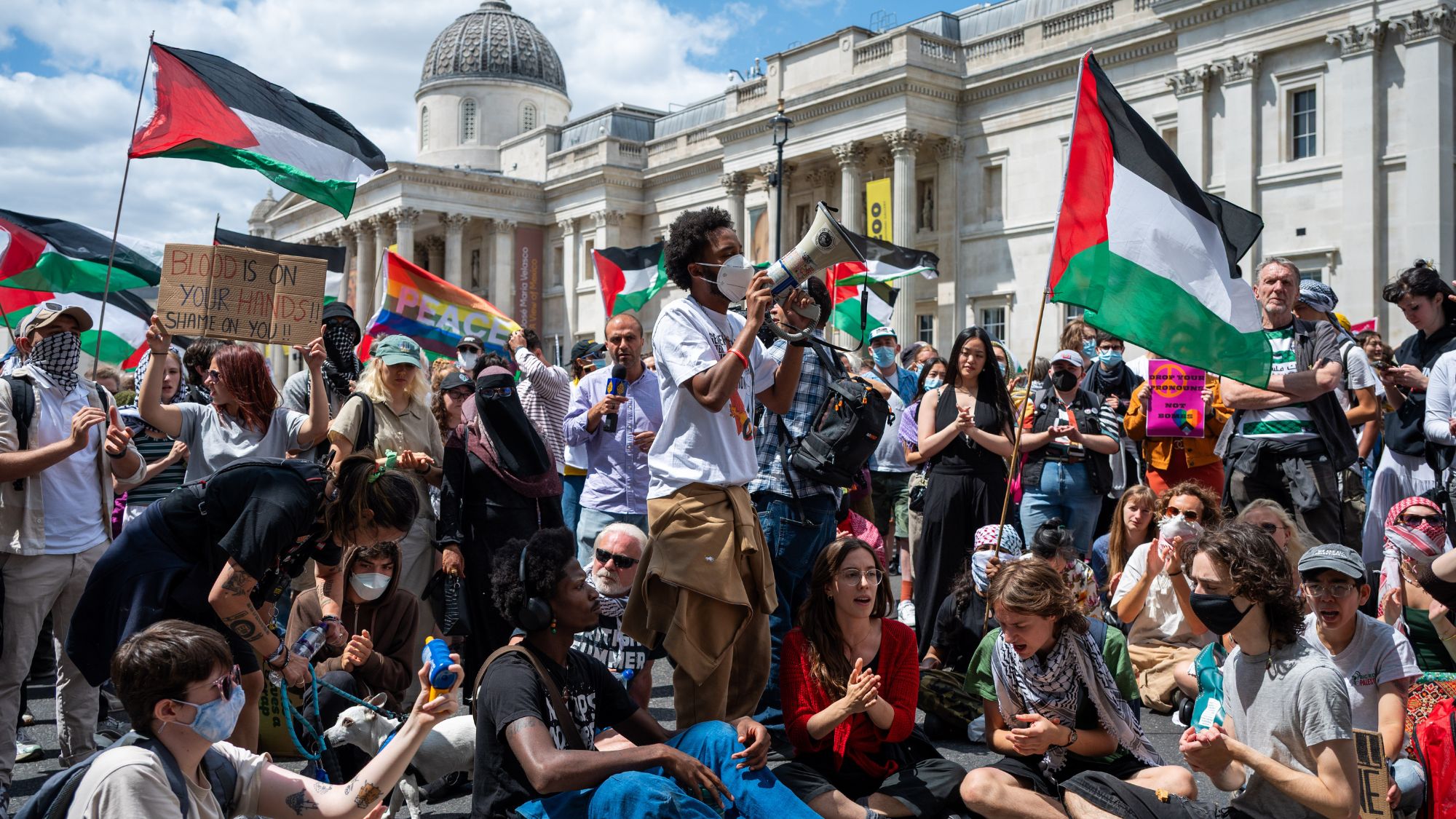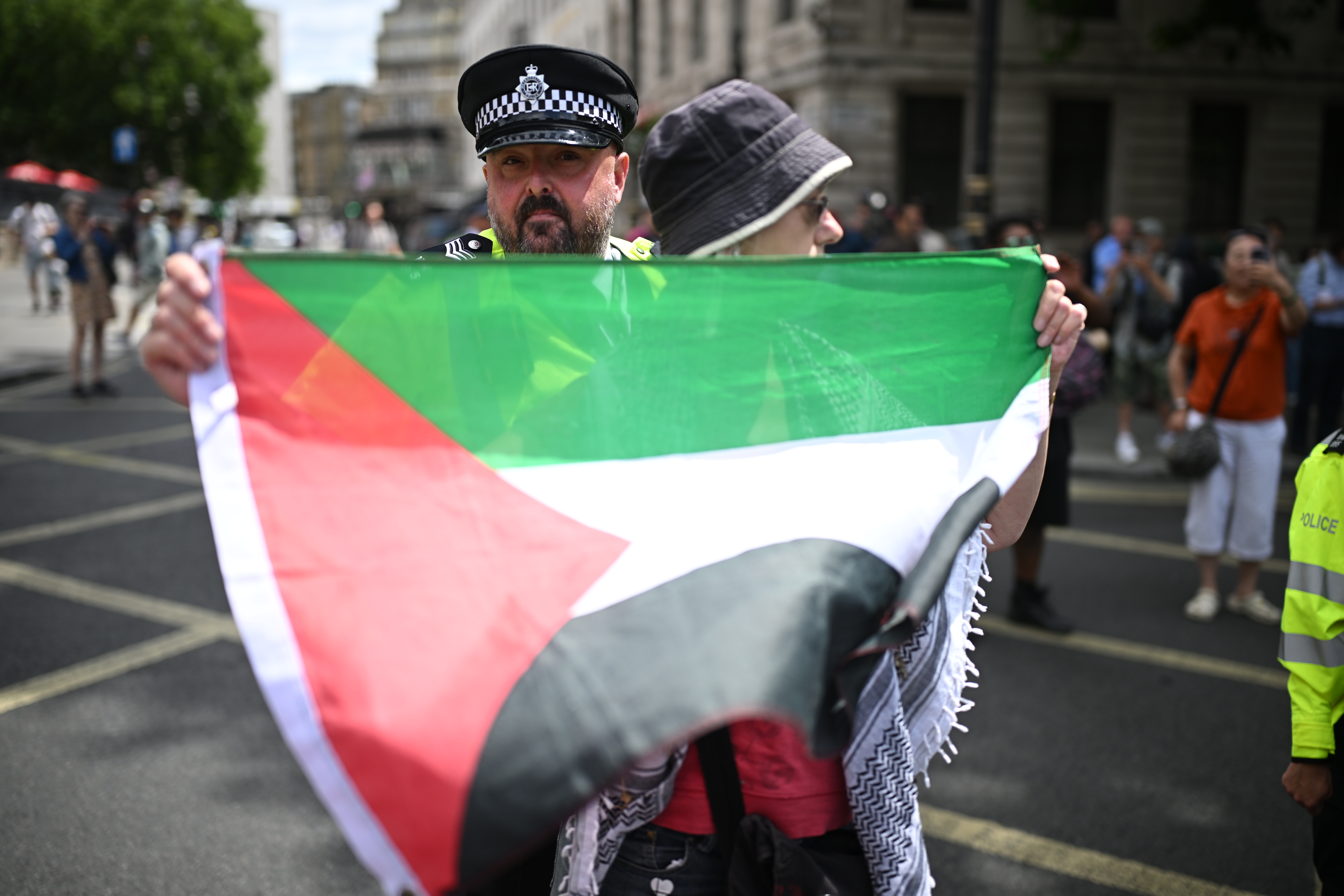Palestine Action, a Pro-Palestinian Activist Group, Has Been Declared a Terrorist Organisation
UK Terror Laws now target protesters, but critics worry free speech is under threat as UK bans Palestine Action


The UK government has declared Palestine Action—a pro-Palestinian activist group—a terrorist organisation under the Terrorism Act 2000.
Home Secretary Yvette Cooper confirmed a draft order to proscribe Palestine Action will go to Parliament on June 30, following their break-in at RAF Brize Norton and damage to two Airbus Voyager planes, which prompted a counter-terror investigation.
The move to mark the group as a terrorist organisation, however, is more than a legal classification and critics warn it could have far-reaching implications for free speech, protest rights, and civil liberties in Britain. It also represents a major policy shift—treating certain protest actions as terrorism—and has already triggered widespread outcry across the political spectrum.
As reported by Reuters, the proscription—which is set to come into effect next Monday—would place Palestine Action on the same legal footing as groups like Hamas, al-Qaeda, and ISIS. Under the law, it would become a criminal offence to be a member, promote the group, or even share its content. Those found in breach of the ban could face up to 14 years in prison.
Despite the move, Palestine Action retains notable public support with hundreds of protestors showing up at an impromptu demonstration in support at Trafalgar Square yesterday afternoon. In an op-ed for The Guardian on Sunday, June 22, Irish novelist Sally Rooney voiced her solidarity: “I can only say that I admire and support Palestine Action wholeheartedly – and I will continue to, whether that becomes a terrorist offence or not.” Labour MP Zarah Sultana, in a post praising Rooney’s piece which has received 28.1k likes, called for followers to “defend the right to protest,” while Independent MP Jeremy Corbyn released a statement calling the proposal “absurd”.
The ban, however, has received some backing from Westminster with Home Secretary Suella Braverman calling the proscription “absolutely the correct decision”. The government’s justification for the proscription centres on accusations of criminal damage—most notably the recent break-in, with damages estimated in the millions. Prime Minister Sir Keir Starmer called the incident, which is being investigated by counter-terrorism police, “disgraceful”.

A protester holds a Palestinian flag in front of a police officer during a Palestine Action demonstration at Trafalgar Square on June 23, 2025 in London.
According to The Guardian, former justice minister Lord Falconer said the RAF incident “does not justify such a move,” while Amnesty International and other human rights groups argue that applying terrorism laws to protest campaigns sets a dangerous precedent.
Celebrity news, beauty, fashion advice, and fascinating features, delivered straight to your inbox!
Meanwhile, The Associated Press reports that Metropolitan Police chief Mark Rowley described Palestine Action as an “organised extremist criminal group.” Home Secretary Cooper called the Brize Norton protest the latest in the group’s “long history of unacceptable criminal damage.”
The government has said the draft order will be formally laid before Parliament next week. While lawmakers still need to approve it, the ban is widely expected to pass both Houses following Cooper’s presentation on June 30.
If enacted, Palestine Action will join a list of around 80 proscribed organisations in the UK, which includes Hamas, al-Qaeda, and far-right groups such as National Action, a banned neo-Nazi network.
Critics argue this decision could mark a turning point in UK protest policing—from targeting violent acts to surveilling and criminalising non-violent, cause-based activism. The concern, they say, extends beyond Palestine Action.
What does the proscription mean?
- Once proscribed, membership or support—including sharing content, fundraising, or attending events—could result in up to 14 years in prison.
- Authorities will also gain broad powers to seize materials, ban protests, and enforce terrorism-level restrictions.
- The Terrorism Act includes broad and loosely defined terms like "support" and "encouragement," which legal experts say could capture non-violent speech and activism. Earlier this year, Jewish Voice for Labour raised concerns that the Terrorism Act was being used to “silence dissent on Israel and Palestine.”
- In recent days, police have already imposed exclusion zones, preventing Palestine Action from demonstrating outside Parliament.

Mischa Anouk Smith is the News and Features Editor of Marie Claire UK.
From personal essays to purpose-driven stories, reported studies, and interviews with celebrities like Rosie Huntington-Whiteley and designers including Dries Van Noten, Mischa has been featured in publications such as Refinery29, Stylist and Dazed. Her work explores what it means to be a woman today and sits at the intersection of culture and style. In the spirit of eclecticism, she has also written about NFTs, mental health and the rise of AI bands.